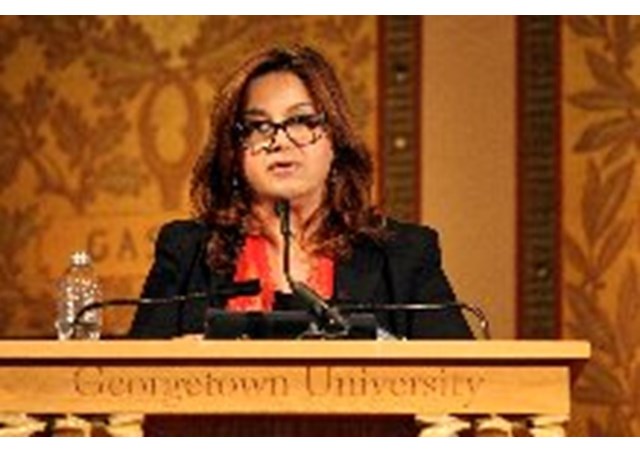
A Muslim pespective on Nostra Aetate's interfaith legacy

(Vatican Radio) Wednesday October 28th marks the 50th anniversary of the Second Vatican Council declaration, Nostra Aetate, which profoundly reshaped the Catholic Church’s relationship with people of other faiths. Issued in the closing weeks of the Council in 1965, the document for the first time urged Catholics to recognize the truth present in other religions and to work together with other believers for the benefit of all of humanity.
During a recent conference at Georgetown University In Washington DC, organised by the Ecclesiological Investigations International Research Network, experts and scholars from other faiths discussed the impact that document has had on their own communities. Among the speakers was Muslim Professor Bahar Davary who teaches at San Diego Unversity’s department of theology and religious studies. She talked to Philippa Hitchen about Muslim reactions to this ground breaking declaration…
Listen:
Ms Davary spoke about the fact that while Catholics were surprised at the declaration, Nostra Aetate, Muslims were not, since the Koran holds Christian figures such as Jesus and Mary in high esteem. Rather than introducing the idea of interfaith dialogue to Islam, Nostra Aetate reinstated the respect Muslims have for other religions.
However, the document does not explicitly mention Islam, a problem acknowledged by Ms Davary and by other Muslim scholars. She admits it is a “sore point” in the dialogue between Christianity and Islam, but goes on to exemplify situations in which interfaith solidarity is hard at work.
From grassroots conversations in mosques and churches to intellectual exchange in the academic world, Ms Davary calls for a practical approach, so that people of all faiths might be able to “put the past aside”, along with their theological differences, and address more pressing matters such as poverty, incarceration, racism and gender issues.
| All the contents on this site are copyrighted ©. |


